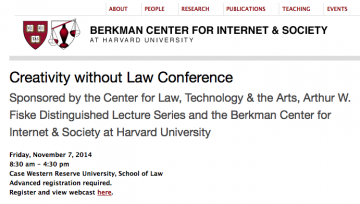Halt and Catch Fire
I recently came across a new series on Netflix, “Halt and Catch Fire.” Seems to consider a lot of the themes we spoke about during our class.
Creativity through privacy v NSA
You will likely have come across this news in the last 24 hours, that the NSA is being sued by Wikimedia/ACLU for their Dragnet surveillance program: https://firstlook.org/theintercept/2015/03/10/wikipedia-sues-nsa-dragnet-internet-surveillance/ I think it’s fair […]
Data States
http://www.wired.com/2015/02/an-open-conversation-for-facebook-friends/ This article encapsulates a lot of the themes I raised during my presentation on privacy – particularly in the sense of shifting our understanding of tech giants, from mere service/efficiency […]
Citizenfour
“Many people I’ve talked to say that they’re careful about what they type into search engines because they know that it’s being recorded. And that limits the boundaries of their […]
Tuesday Presentation Materials
Ahead of my presentation on Tuesday, please check out the following: Glen Greenwald: Why privacy matters Sarah Lewis: Creativity and Privacy Go Hand in Hand Chapter 11 of Code […]
Creativity Without Law
This is a webcast of a conference that took place this past November entitled “Creativity Without Law”, co-sponsored by the Harvard Berkman Center: The event will focus on the growing body […]


 Check out the UBC VideoGame Course
Check out the UBC VideoGame Course